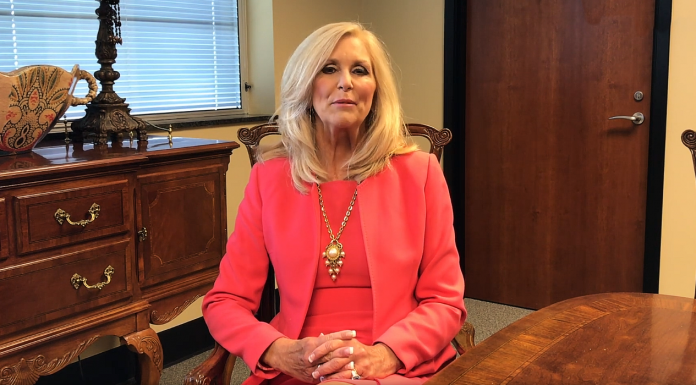The U.S. Supreme Court should overturn its controversial 1973 ruling that legalized abortion nationwide and should let states decide whether to regulate abortion before a fetus can survive outside the womb, the office of Mississippi’s Republican attorney general argued in papers filed with the high court on Thursday.
“Under the Constitution, may a State prohibit elective abortions before viability? Yes. Why? Because nothing in constitutional text, structure, history, or tradition supports a right to abortion,” Mississippi Attorney General Lynn Fitch and four of her attorneys wrote in the brief.
The arguments are a direct challenge to the central finding of the court’s 1973 Roe v. Wade decision and its 1992 decision in a Pennsylvania abortion case.
Both rulings said states may not put an “undue burden” on abortion before viability.
The Mississippi attorneys argue that the rulings are “egregiously wrong.”
The Mississippi case is the first pro-life in a Supreme Court reshaped with three justices nominated by former President Donald Trump.
However, court watchers, and even some of the justices themselves have wondered if its two junior-most members, Brett Kavanaugh and Amy Coney Barrett, might cave under pressure and abandon their previous pro-life stances when faced with overturning one of the most divisive decisions in the court’s modern history.
Many also have begun to doubt whether Chief Justice John Roberts, a George W. Bush appointee, can even be considered a conservative following a sleight of betrayals to his purported ideology.
But in May, the three centrist and three conservative justices joined for a 6–3 majority to say that the court would consider arguments over a Mississippi law that would ban abortion at 15 weeks. Justices are likely to hear the case this fall and could rule on it in the spring.
Abortion supporters have said that if justices uphold the Mississippi law, that could clear the way for states to enact more restrictions on the procedure, including bans on abortion once a fetal heartbeat is detected, as early as six weeks.
Several state legislatures already have passed laws to that effect, although the current federal law has supremacy over them.
A federal district judge on Tuesday blocked an Arkansas law that would ban most abortions, ruling that the law is “categorically unconstitutional” because it would ban the procedure before the fetus is considered viable.
The Mississippi 15-week law was enacted in 2018, but was blocked after a federal court challenge.
The state’s only abortion clinic, Jackson Women’s Health Organization, remains open and offers abortions up to 16 weeks of pregnancy. Clinic director Shannon Brewer has said about 10% of its abortions there are done after the 15th week.
More than 90% of abortions in the U.S. take place in the first 13 weeks of pregnancy, according to the Centers for Disease Control and Prevention.
The Mississippi clinic has claimed that viability is impossible at 15 weeks, and an appeals court said that the state “conceded that it had identified no medical evidence that a fetus would be viable at 15 weeks.”
Viability occurs roughly at 24 weeks, the point at which babies are more likely to survive.
Mississippi argues that viability is an arbitrary standard that doesn’t take sufficient account of the state’s interest in regulating abortion.
The Mississippi law would allow exceptions to the 15-week ban in cases of medical emergency or severe fetal abnormality. Doctors found in violation of the ban would face mandatory suspension or revocation of their medical license.
“That law rationally furthers valid interests in protecting unborn life, women’s health, and the medical profession’s integrity. It is therefore constitutional,” the Mississippi attorney general’s office wrote in its Thursday filing.
The attorney who will make Mississippi’s oral arguments before the Supreme Court is the state solicitor general, Scott G. Stewart, a former clerk for Justice Clarence Thomas.
Also in the filing Thursday, the Mississippi attorneys wrote that if the Supreme Court does not overturn the standard that abortion restrictions should face heightened-scrutiny, the court “should at minimum hold that there is no pre-viability barrier to state prohibitions on abortion and uphold Mississippi’s law.”
The Mississippi attorneys wrote that circumstances for women have changed since the 1973 and 1992 Supreme Court rulings.
“Today, adoption is accessible and on a wide scale women attain both professional success and a rich family life, contraceptives are more available and effective, and scientific advances show that an unborn child has taken on the human form and features months before viability,” the Mississippi attorneys wrote. “States should be able to act on those developments.”
Adapted from reporting by the Associated Press

